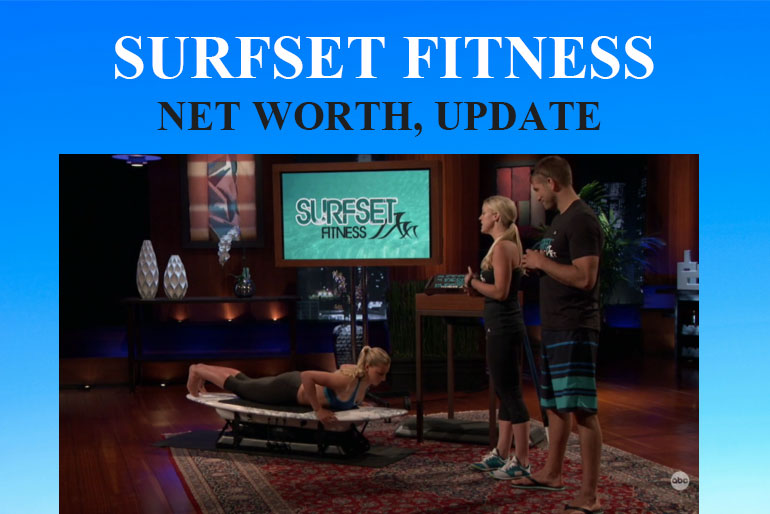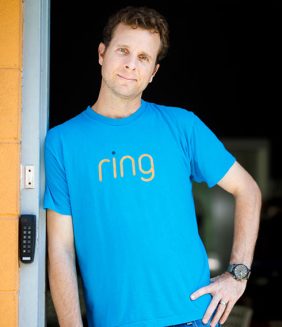Back in 2012, two surf-obsessed fitness lovers rolled an unstable board into ABC’s Shark Tank and asked the Sharks for cash. Their invention, the RipSurfer X, recreated the wobble of real waves, promising a full-body workout that felt more like hanging ten than grinding reps. After a lively demo (Robert Herjavec literally jumped on the board), Mark Cuban sealed a deal of $300,000 for 30 percent equity—a valuation of about $1 million at the time.
The First Break: 2012-2015
Cuban’s capital kicked off a 24-city certification tour, partnerships with brands such as Under Armour, and media spots on Good Morning America and Access Hollywood. By the end of 2012, Surfset had certified trainers in 29 U.S. cities. The buzz proved the concept: people craved workouts that felt playful, unstable, and yes, a little sandy.
From Niche to Global Franchise
Fast-forward to the mid-2020s and Surfset has spread far beyond American shores. Founder Sarah Ponn’s LinkedIn highlights “350 licensed locations in 32 countries.” Meanwhile the brand’s main Instagram bio boasts “800+ locations”—a sign that licensing keeps widening its footprint even if every studio isn’t directly owned.
How did they scale?
- Low-Cost Licensing: Studios purchase RipSurfer X boards and instructor training, then layer Surfset classes into existing schedules—a quicker path than opening standalone gyms.
- Pop-Up Partnerships: Crunch Fitness launched “Surfset & Sand” classes in major U.S. cities, giving the gear mass-club visibility without big capital outlays.
- International Master Franchises: Singapore, India, and other markets secured regional rights, tweaking class names but sticking to the surf-in-the-city vibe.
The Pandemic Pivot
Like every boutique fitness brand, Surfset had to adapt when lockdowns shut studios. The answer: livestream and on-demand classes that translated the workout to small spaces—no board required. Customers could sign up, receive a Zoom link, and replay the workout for 48 hours. The “virtual beach” kept instructors earning, nurtured brand loyalty, and created a digital revenue stream that still runs in 2025.
Money Talk: Revenue vs. Net Worth
- Annual Revenue: Surfset’s Shark Tank Blog profile pegs revenue at $8 million as of April 2024, after a decade of organic growth.
- 2025 Projection: Assuming the brand’s historic ~10 percent yearly uptick continues, 2025 revenue lands near $8.8 million.
But revenue is not the same as net worth. For a private, license-heavy business, net worth (owners’ equity) can sit well below top-line sales because:
- Licensed studios, not Surfset HQ, shoulder much of the operating cost.
- Hardware production and digital platforms eat margins.
- Expansion often relies on reinvesting cash instead of piling on debt.
One popular Shark-Tank-fan estimate puts Surfset’s current net worth at about $2.59 million. Yet industry valuation studies show that health-and-fitness companies usually sell for roughly 0.7-1× annual revenue. Using that yard-stick, Surfset’s enterprise value might reach $6–9 million. Combine that range with the fan estimate and you get a realistic 2025 snapshot:
| Metric | Low | Mid | High |
|---|---|---|---|
| Estimated 2025 revenue | – | $8.8 M | – |
| Implied valuation @0.7× | $6.2 M | – | – |
| Implied valuation @1× | – | – | $8.8 M |
| Fan-calculated net worth | $2.6 M | – | – |
Takeaway: Because Surfset is privately held, all numbers are approximations, but the table shows why different sources land at different figures.
Leadership Shifts
Co-founder Mike Hartwick exited the company in February 2021; Sarah Ponn remains the driving force. With Cuban’s Dallas-based investment team largely hands-off day to day, Ponn oversees product updates, digital content, and global licensing deals.
Product Evolution
- RipSurfer X 2.0: Lighter composite materials and sharper rocker lines (the curve of the board) make the latest model easier to stack for group classes.
- Surfset “Shore” Classes: A mat-based version launched in 2023 for clients without access to a board, reducing hardware barriers.
- Hybrid Sessions: Post-pandemic studios run 30-minute board drills followed by 15-minute dumbbell circuits, catering to members who want both balance work and classic strength moves.
Who Uses Surfset in 2025?
- Urban Professionals craving a playful stress release after deskbound days.
- Seasonal Surfers who want to keep core strength during flat-wave months.
- Cross-Training Athletes—marathoners and triathletes turn to instability drills to fire tiny stabilizer muscles and prevent injury.
- Virtual Nomads streaming classes from Airbnb kitchens while traveling.
Competitive Landscape
Boutique fitness remains crowded—think Peloton, F45, and franchise spin-offs from giants like Xponential Fitness. Surfset’s edge is its novel, surf-themed brand story. Competitors can copy balance trainers, but the “ocean vibe” resonates on social, helping Surfset punch above its marketing budget.
Challenges Ahead
- Equipment Logistics: Shipping bulky boards internationally inflates costs.
- Digital Saturation: The at-home fitness boom means Surfset competes with hundreds of on-demand platforms.
- Retention: The workout’s fun factor is high, but novelty can wear off; studios must refresh class formats every few months.
Why Net Worth Could Keep Growing
- Licensing Adds Leverage: Each new studio pays a fee and buys boards, creating high-margin revenue.
- Virtual Upsells: Digital subscriptions double-dip—licensees pay franchise fees while end-users pay class fees.
- Corporate Wellness: Surfset’s short, low-impact versions fit lunch-and-learn programs, an under-tapped market for 2026.
The Mark Cuban Effect
Investors often ask whether Cuban still benefits. Assuming no secondary sales, his 30 percent stake is now worth:
- $780,000 if you use the fan net-worth figure.
- $1.9–$2.6 million under the revenue-multiple scenarios above.
Either way, it’s a respectable paper gain, plus years of brand exposure in the Cuban portfolio showcase.
Final Word
Surfset started as a clever way to surf without water; in 2025 it’s a boutique fitness brand with a multi-million-dollar valuation, 350-plus licensed spots, and a growing digital arm. Whether you hop on a board in New York’s East Village, stream a “Shore” class on your balcony, or just scroll past its 800-location brag on Instagram, Surfset shows how a fun idea—inspired by shaky waves—can still balance profit and play more than a decade after Shark Tank fame.
















